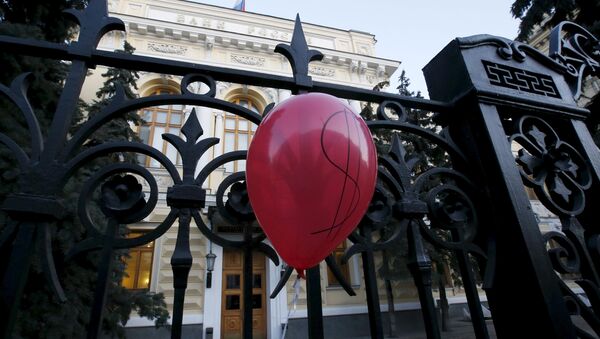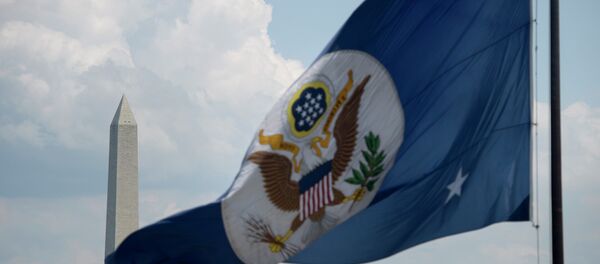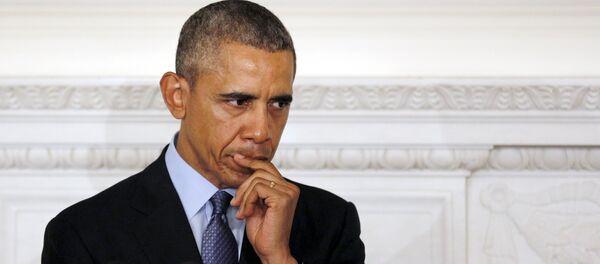“Should the emission succeed, that would be a blow to the West. For the EU and US, it would be a political fiasco,” suggests German Die Welt newspaper.
“The agreement of western banks to assist the Russian state with financing will be a fatal signal for western countries,” it further elaborates.
The move will make the sanctions de facto worthless, and will leave western countries no means of leveraging economic pressure on Russia.
Deputy Finance Minister Sergei Storchak told reporters on Thursday that enough of the foreign banks, which were sent an inquiry earlier in February, had replied for Russia to proceed with the issuance.
Among those on the list are Barclays, BNP Paribas, Bank of America Merrill Lynch, Bank of China, Wells Fargo, Goldman Sachs, J.P. Morgan, Deutsche Bank, Industrial and Commercial Bank of China, Credit Agricole, Credit Suisse, Landesbank Baden-Wuerttemberg, Morgan Stanley, Nomura, Sberbank CIB, Citigroup, Societe Generale, TD Securities, HSBC, RBC Capital Markets, UBS, Scotiabank, China Construction Bank, Agricultural Bank of China, UniCredit and Mizuho Financial.
“Many of them just didn’t come back to us on our proposal. That means they’re not participating,” he said. “Not everyone said no: some didn’t reply, and some did. We have enough to choose from.”
“The Treasury told the banks that while there was technically no ban against helping the Russian government raise money, the banks would have to be mindful of the fact that the money could be diverted into activities that were not consistent with US foreign policy,” says the British daily.
A Department of State spokesperson confirmed to Sputnik on Thursday that the US government warned American banks that “doing business with Russia presented a certain risk.”
"We [the United States] continue to be clear in our engagements with US companies that we believe there are risks, both economic and reputational, associated with a return to business as usual with Russia," the official said when asked if the United States warned companies off bidding on Russian bonds.
The Russian bond deal is even more politically risky, as it would undermine international sanctions on Moscow, The Wall Street Journal reported on Wednesday.
“Our view is that the paper will fly, subject to massive external events,” the newspaper quotes a Moscow-based executive at one of the foreign banks without revealing his name. “Russia is by far the largest issuance in the region — given that it has only been repaying [loans] there is a certain pent-up demand.”
The bond issuance will be the first since the western anti-Russian sanctions were imposed in 2014.
Russia last raised cash on international markets with a $7 billion bond in 2013.





